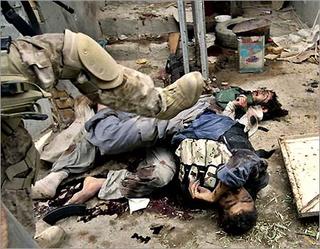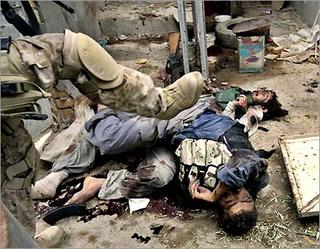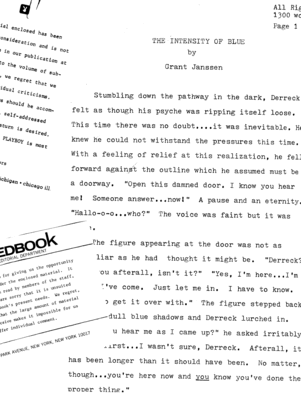Which aliens stole our educational system? The Dallas School Board (yes, that’s Dallas,
T-E-X-A-S, the state where road signs warn: “Don’t mess with Texas”) confirmed that it too has become possessed by
Aliens From An Unknown Planet. The Board voted last week to require their school administrators to learn Spanish (“
to better integrate non-English speaking students into the educational system”). Since the mysterious
Alien Invasion began 45 years ago, I had always remained confident that tough Texas would successfully resist it.

This was the final straw!
Can't quite make out the faces of the students in a one-room school house? That's because they're becoming a faded, blurred memory in history. Did we really have things so wrong then?I was there when it began: Although I wasn't aware of it, the invasion was just reaching my school system, the sprawling Jefferson County School District between Denver city limits and the Rocky Mountains. In the summer of 1961 I had signed on with Evergreen High School—today a ritzy bedroom community populated by upscale Denver businessmen—to set up the first foreign language program (German and Russian). But for my refusal to lend my language programs to some kind of a new “core curriculum” experiment being organized by my principal on behalf of the brand new union, the American Federation of Teachers, the Alien invaders would have captured me too.
The idea was, as the principal and a cadre of his faithful, enthusiastic assistants explained, that instead of me teaching Russian and German to a select few qualified,
crème de la crème students in an “elite, isolated” environment, the new concept would make Russian and German available to every enrolled student. That is, after attending a few “core” courses (presumably the “ABCs”—I never went into it very deeply), they would be permitted to “migrate” into and out of “non-core” courses, at their leisure. My language courses therefore, not considered a “core” requirement, would be open to this “migration” of students. The advantage, as my principal proselytized, was that more students would be able to “experiment” with language courses, without committing to them.
It wasn’t easy to buck my principal. After all, I was a new hire, dependent (as we newbies were indoctrinated by the County School District after accepting our applications) on continuous favorable ratings by our principals for three years, before achieving a semi-secure tenure. But I was adamant. After my recent semester of student teaching in a County high school, I already had a good idea about the level of academic ability and attitudes of a lot of American high schoolers, so I wasn’t about to volunteer to cast my pearls before idly curious students—especially since they wouldn’t be obligated to take my Russian and German classes seriously . . . they would be, in effect, “monitoring” them.
How it happened that I survived that confrontation with this phase of the “education revolution” remains a mystery. I think it had to do with the fact that the “revolutionary” forces promoting the cockamamie ideas weren’t yet strong or confident enough to order me into their strait jacket. So, after an appropriate consultation with his hierarchy, my principal sent me a terse, typewritten memorandum, noting that, for the present school year only, I would be permitted to enroll and teach only those students who demonstrated sufficient aptitude. I became, therefore, the lone exception to Evergreen’s “core concept” system, but it wasn’t comfortable. I was a marked man, generally isolated from my colleagues and I knew I was on shaky grounds.
When you’re in forest, it’s hard to see it for all the trees; therefore, I wasn’t aware that I had just experienced the opening volley of the vast “education revolution” underway. Experimentation with all manner of questionable education techniques and theories came to be the vogue. As during the heady days after the 1917 Soviet Revolution,* any kook who claimed to have discovered an easy short-cut to Nirvana found favor, so now too, American educators began to toy with just about any “progressive” idea. Never mind that the vast majority of these ideas ranged from silly to nonsensical—or that the victims of this experimentation were our prime national resource: the future of our country. Today's teacher isn’t considered "in" unless he/she is on board with the "New Era." The motto of this era should have been from the outset: "
What a shame to waste a nation of minds." *In the 1920s one of Stalin’s favorite toady-scientists, Trofim Denisovich Lysenko, trumpeted that he had the answer to curing certain ailments in animals. One of his experiments that caught the attention of Stalin and his central agricultural planners: Fitting cattle and hogs with booties or shoes. His theory was that this procedure would "breed out" foot and mouth disease in one or two animal generations. This pseudo-scientist overlooked the obvious way to control the disease: by raising animals in a clean, disease-free environment. I can't help wonder whether we've forced our educational system to wear similar booties, while overlooking the obvious.
Getting up to speed: Recently, in an effort to try and catch up with what’s happening in the classroom these days, from time to time, I began reading snatches of my wife’s modern education textbooks (she’s studying for teaching certification) . I was both amused and stunned. The “revolution” that started in 1960 has almost been completed (it's hard to imagine that we could wreck our system any further). Coincident to last week’s announcement that the Dallas School Board had capitulated to the “multidiversity” mantra, last night I flipped open to an interesting chapter of one of her texts; it explained the overriding importance of being "sensitive" to students. The particular passages that caught my attention offered various scenarios, in which non-English speaking, middle-school students would challenge the teacher’s ability to respond to their various “problems”:
self-esteem,
shyness,
inability to “relate”
to new school environment,
in-home mental and sexual abuses, and so on. If kids today don't think they have personal problems when they arrive at school, the teachers will help them acquire a few.
Fascinated, I continued reading, in search of the author’s suggestions on how to teach the kids possessed by the various conditions he described. He discussed, at length, how to identify the potential psychological problems that would abound in any classroom, but stopped short of offering specifics on how to treat them. I guess he left that to the innate creativity and “sensitivity” of each teacher. I then forged ahead a chapter or so, looking for instruction on how to actually impart subject knowledge in the classroom (you know, math, science, reading, etc.)—I mean, just how is the modern teacher supposed to impart specific knowledge to kids who might not be able to communicate in English? And, on top of that, they might also be suffering from the myriad of psychological problems--right? My wife suggested that other courses and textbooks probably take up these questions (although I have my doubts).
I taunted her with a hypothetical: “
Let’s say you’re teaching elementary arithmetic in a largely non-English capable class? What’d be wrong with just plowing forward by teaching arithmetic in English? After all, they’re young kids who, as everyone knows, pick up language skills faster than adults. Why not assure them that you’ll always entertain any question in class.” I tried to anticipate her objection, “
Of course, you’d have to notify each parent and encourage them to push their kids in English—even if it meant getting them tutors or into additional, outside English classes on weekends. And, of course, you’d have to be able to work with the kids after school hours until they became comfortable and started to ‘get it.’”
My wife looked at me like I was the
Chief Alien Invader! “You’re so far out of the loop, it’s not funny. Are you kidding? You wouldn’t last more than a day! And if you did, you’d probably have a lawsuit slapped on you within a month.”
So much for turning back the revolution!But what brought this about? It was the 1960s—the Age of Aquarius was being introduced along with its handmaidens:
free love (an import from Sweden); freely available
marijuana; Timothy Leary’s cactus-derived path to Nirvana; the Easy Rider syndrome—all in reaction to our weariness with the Cold War. The threat of a nuclear holocaust hung over everyone’s head, 24/7. Our schools were running regular nuclear drills by (naively) having our kids duck under their desks at the first sign of a blinding flash. And then--as if Americans would be cheered by a negative national policy of moral equivalence, the government announced that Mutual Assured Destruction (MAD) would guarantee our Soviet adversaries would, hand in hand with ourselves, enter Valhalla should they drop a nuke on us or our allies.
Now enter the young, glitzy president, having just beaten his dour Republican op

ponent and his 5-o’clock shadow during the first televised presidential debate. His recent bride, socialite Jacqueline Bouvier, was his perfect Lady Gwenevere. Jackie inspired instant adoration and emulation by American youth. Young ladies aped her pill-box hats and modish hairstyles. Her style and beauty won over everyone, including thick-necked Soviets and other foreign diplomats. The attractive pair offered instant relief from the oppressive, dark Cold War era. It was
Camelot, the Age of Youth--on a quest for that new, shining castle on the hill.
 Out with the old, in with the new
Out with the old, in with the new: By definition, the
New Age of Camelot required being ready to throw the baby out with the bath water, if necessary! And what better candidate than our "outmoded" public education system! The teacher unions took charge.
Out: Rote memory drills in the ABCs; penmanship classes demanding conformance and neatness; multiplication tables to be recited until perfect; stern teachers who insisted on parsing strange verbs in useless Latin (“
how come we have to learn a language nobody speaks”); reading “hard” stories written by an outdated dude called Shakespeare in outdated and awkward English that was “hard” to understand; “hard” civic classes in government, on the constitution—especially vile were teachers who insisted their students memorize the Declaration of Independence and Lincoln’s Gettysburg address, and . . . well, everyone now bought the new line:
The old methods of education were restricting the "self-realization" of our children in the Age of Aquarius. There must be a better, easier way. And so the word went forth and spread like wildfire:
“Education for the New Age must be more 'student-oriented' in the spirit of self-liberation and self-fulfillment.”The Metamorphosis: Most of us are aware of how far experimentation with this “spirit” has gone in our public schools; to outline them all would exceed the space for this essay. However, both course content and teaching techniques underwent moderate to radical changes. Curriculum selection and design favored those subjects in which students could find instant gratification and “self-realization.” Teaching techniques were modified so that the teacher was no longer to be an authority figure or a towering model of knowledge, but rather a “facilitator” whose role is to “encourage” students to investigate themselves--as opposed to the world of knowledge.
Self-realization becomes the center of gravity. The Age of Camelot was reinforced by LBJ’s “Great Society” that continued to emphasize individual “self-realization,” and by the mid-1960s included increasing concern for the social needs of the poor and neglected in American society. JFK began and LBJ continued to confront the unfinished business of racism and civil rights for the people Lincoln had emancipated nearly 100 years earlier. Martin Luther King emerged to become the lightning rod for this final stages of emancipation, which, in the school room, grew to include concern for
all ethnic groups. This was translated into the buzz word “
multiculturalism” which educators happily accommodated. In doing so, among other things, they devised the (very odd) concept of welcoming non-English speaking students into the classroom, by accommodating them with instruction in their native languages! This was consistent with the evolving New Age philosophy of not overly burdening students' intellectual capacities.
"Ebonics" and the “Dallas Solution.” Despite the “dual language” concepts being counter-intuitive, “professional” educators continued this experiment unchallenged. In fact, the Oakland (California) and Dallas (Texas) went one step farther: In 1999, the Oakland School District approved teaching “black street talk” (educators dubbed it “
Ebonics”), ostensibly to make students and teachers more “sensitive” to the black majority of students. And only last week, the Dallas School District mandated that school administrators would have three years to learn Spanish, ostensibly to make them “more sensitive to Hispanic students’ needs.” Clearly, Aliens have captured the minds of those two school boards.
How to reform the reforms? Since the Alien Invasion began in 1960, I’ve become distraught when I think about the terrible things we've done to two generations of our prime national resource. As a result, just to maintain a touch-and-go status quo in science, technology, medicine, and business, we’ve had to turn for "brain power" to Europe, India, and elsewhere. There
are a few recent encouraging signs—like the “
No Child Left Behind” concept—that we may be awakening to the scope of the problem; however, what remains is to energize and empower the widest sectors of our society to undertake the reform of the reform.
At my lowest psychological points, I’ve fantasized that a brilliant team of all-American geniuses would appear—like in sci-fi flicks—and in one cathartic effort come to the rescue, exorcise the Aliens and restore our education system. But Hollywood fantasies are a terrible cop-out. Instead, we have to call upon concerned Americans at all levels of society, while ignoring those educators still infected with the Age of Camelot. As a one-time teacher, I have some a specific concept of where to begin, but I’ll leave that for another blog.
Conclusion: I know this much: the problem is so enormous that no sloganeering or advocating one single solution will untangle the monstrous Gordian Knot we’ve created. It will take the will and energy of competent thinkers together with real-world movers and shakers, using the combined resources in the private and government sectors, to “part the Red Sea.”
N.B. The present essay begs the question: "What happened at the college and university levels?" I'll have something to say about this in future musings.












 General: Iraq is a completely different event, with much more subtle and complex underpinnings. It undoubtedly will outlast the 25-year Vietnam conflict, and it well may span the remainder of this century! Not just because it's a war without the usual characteristics such as identifiable military units, uniforms, and defined battlefields. But mainly because this is turning out to be a cultural (read "religious") conflict, instead of the familiar political type, for which Clausewitz designed our now familiar military models.
General: Iraq is a completely different event, with much more subtle and complex underpinnings. It undoubtedly will outlast the 25-year Vietnam conflict, and it well may span the remainder of this century! Not just because it's a war without the usual characteristics such as identifiable military units, uniforms, and defined battlefields. But mainly because this is turning out to be a cultural (read "religious") conflict, instead of the familiar political type, for which Clausewitz designed our now familiar military models.





 In case you're having to squint to read the above reproduction, let me assist. It opens:
In case you're having to squint to read the above reproduction, let me assist. It opens:


